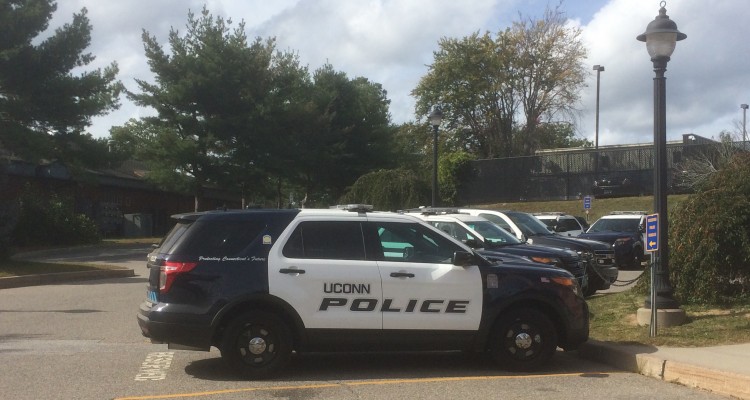Listen to the story below.
Audio Player
By Jessica Lerner
The University of Connecticut released a new report on Friday, revealing a significant increase in reports of certain crimes, including sex offenses.
University officials say the increase is not because there are more instances of sexual assault, but rather from the improved efforts to better record and capture all known incidents and allegations.
The report shows that from 2012 to 2014, the number of sex offenses appears to double with each successive year, from 13 in 2012, 25 in 2013, and 53 in 2014.
Elizabeth Conklin, UConn’s associate vice president in charge of the Office of Diversity and Equity and Title IX Coordinator, said in The Connecticut Mirror that, “increased sexual assault reporting tells us that more individuals are feeling comfortable coming forward to share their stories.”
Last summer, UConn paid $1.3 million to settle a lawsuit by five women who alleged the school did not properly handle their complaints of sexual assault.
The university therefore made changes to better handle how students are treated when they come forward.
UConn has increased training for campus officials in order for them to better understand that they are legally required to report every allegation or incident of which they are aware.
The training is a one of the primary reasons behind the increased crimes as the campus security authorities have better understood and complied with their responsibilities.
Barbara O’Connor, UConn’s police chief and director of public safety, said in the Connecticut Post, “typically, the more of that you do, the more comfortable people will be with reporting and having confidence in the process, particularly in discussing sensitive crimes such as sexual assault.”
Instances of dating violence and stalking have more than tripled due to the required reporting from campus security authorities and the updated methods of classifying and reporting incidents.
Referrals and arrests for alcohol violations also rose between 2013 and 2014.
Stephanie Reitz, a spokesperson for UConn, said those numbers are primarily driven by reports from resident assistants whose required training now emphasizes the mandatory notification of police when they encounter such incidents in the dorms.
Last year, O’Connor said that due to UConn’s past crime reporting practices, it would most likely receive a fine from the federal Department of Education.
Shortly after O’Connor was hired in 2012, she ordered the audit for its compliance with the Clery Act, which requires colleges to keep and report statistics on crime in and around campus.
However, Reitz said that no decision has been made on whether the school will be fined.
Some other Connecticut schools also released similar information on Friday including Wesleyan University and Eastern Connecticut State University.
Wesleyan reported 37 on-campus rapes of its students in 2014, while Eastern reported two on-campus rapes in 2014, the same as 2013.


